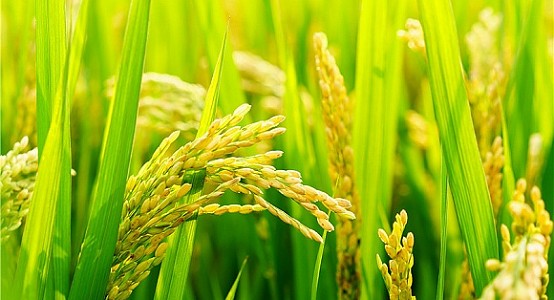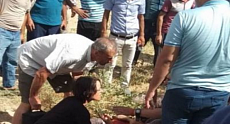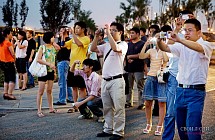Dubai plans to grow Chinese saltwater rice throughout North Africa

Beijing. Jul 26. Silkroadnews - Dubai aims to create an oasis that covers more than 10 percent of its land with saltwater rice developed by Chinese researchers and then expand out to the rest of the Middle East and North Africa, Global Times reports.
The Qingdao Saltwater Rice Research and Development Center, headed by the Chinese “farther of hybrid rice” Yuan Longping, is trying to breed rice varieties that can grow in salt water adapted to the climate of Dubai.
The temperature in Dubai can reach 54C in the period from June to July, during the day the temperature fluctuations can swing over 30C or more, and there is salt water with a salinity of 1.6 percent seven to right meters under the desert, the report reads.
“We are choosing the most suitable breeds for Dubai from more than 80 varieties”, Zhang Guodong, deputy director of the Center, said. The varieties of saltwater rice developed by the Center can grow in water with a salinity of 0.6%. Salinity of sea water can reach 3.5%, Zhang also noted.
The first batch of mature rice, yielded in Dubai in May, has a maximum yield of 7.8 tons per hectare.
The project of cooperation on the saltwater rice cultivation in the United Arab Emirates (UAE) is promising, as the country considers the possibility of transferring its oil-based economy to other industries. In case the UAE project is successful, technology could feed the entire Arab world, said Yin Gang, a researcher at the Institute for West Asian and African Studies at the Chinese Academy of Social Sciences.
In 2019, an experimental farm for the cultivation of saltwater rice with an area of 100 hectares will be launched in the desert in Dubai. The farm will be financed through commercial investments, including China’s Belt and Road initiative.
The UAE also agreed with the center to establish the Yuan Longping Middle East and North Africa Salt Water Hybrid Rice Research and Promotion Center, which will promote rice growing technology in the Middle East and North Africa, the report says.


